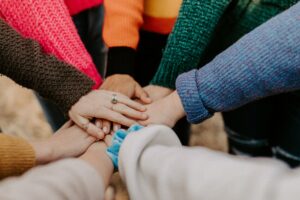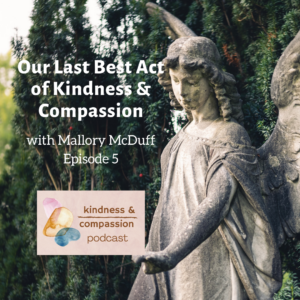
Death is a subject most of us tend to avoid. In particular, thinking about our own death or the death of loved ones. But as most of us know, death is a reality of life and it touches us all at some point. In this episode we tackle this topic with Dr. Mallory McDuff a professor of environmental studies and author of Our Last Best Act; Planning for the end of our lives to protect people and places we love. We explore how kindness and compassion can be practiced even in death and with our end of life issues.
Meet Mallory McDuff
 Mallory McDuff teaches environmental education at Warren Wilson College where she lives on campus with her two daughters. She’s the author of four books, including her most recent: Our Last Best Act: Planning for the End of Our Lives to Protect the People and Places We Love. Her essays have appeared in the New York Times, Washington Post, WIRED, and more. Find her at: mallorymcduff.com
Mallory McDuff teaches environmental education at Warren Wilson College where she lives on campus with her two daughters. She’s the author of four books, including her most recent: Our Last Best Act: Planning for the End of Our Lives to Protect the People and Places We Love. Her essays have appeared in the New York Times, Washington Post, WIRED, and more. Find her at: mallorymcduff.com

Kindness and Compassion When Death Comes
For the average person, thinking about death is difficult. It is one of those topics that is considered morbid and somewhat taboo. But the reality is that it is something we all will be confronted with at some point in our lives. Either the death of loved ones or even our own impending deaths. So where does kindness and compassion come into this?
Some of the most significant times of transition for anyone is when we lose those that are close to us. The death of parents and family members is part of the natural order of life. And there are those times when death comes tragically or in an untimely manner. Nonetheless, to be with someone at the time of their death is truly a sacred space and one of the greatest’s acts of kindness and compassion.
And throughout these last few years through the COVID pandemic, there have been so many untimely deaths. There have been so many stories of medical workers and strangers holding hands and simply being with people as they pass from this world. It is a true act of kindness and compassion.
Why We Need Rituals Around Death
One of the reasons that death is such a difficult topic is because of the emotional impact of grief. Grief is one of the most, if not the most, painful of life experiences and emotions. Anytime we experience a loss, we experience grief.
In this conversation with Mallory, we touch on how our final acts with people who have died becomes part of the kindness and compassion we not only offer to the person who has died, but becomes an act of kindness and compassion in our own grief.
Throughout history we have known the power of funerals and memorial services. It is one of the necessary things we need to heal in our grief. We see it all the time when people die. It is our go-to. Rituals and ceremonies around death also give closure and resolution.
But our traditions are changing. As we have become more aware of environmental issues and the need for sustainability, the way we care for the dead and what is done with the body is changing. We are truly getting back to the basics and becoming much more practical in our rituals and customs.
Our Last Best Act
In this episode, Mallory shares some of her family story and about the loss of her parents, who both died tragically. Her mother died in an automobile accident involving a teen driver under the influence of alcohol. And then her father died two years later, much the same manner being hit by another teen driver while riding his bike.
Mallory shares how following her mother’s death her father sat the family down to go over his final wishes. And part of his wishes were to somewhat break from the tradition of using a funeral home, by having the family prepare his body and do the burial themselves. His wishes were for him to not be embalmed and just simply wrapped in some linen tablecloths and placed in a homemade pine casket.
“In some weird way, this was like an act of kindness from my dad to us…”
Mallory shares how helping prepare her dad’s body for burial was in many ways, even though she did realize it at the time, an act of kindness from her dad. Her dad was very much an environmentalist and his final wishes were very much befitting of him. Needless to say, this life experience had an impact for Mallory and was really the catalyst for her book.
Alternative Options For Burial and Cremation
As an environmental educator, Mallory began to research and explore more sustainable and environmentally friendly options for final disposition of our bodies. She wanted to find what options people could use to help sustain the environment and be more climate aware around death and burial options.
Traditional earth burials in perpetual care cemeteries, vaults or concrete containers are used to place the casket in. And a big majority of caskets are made of metal. And in addition to this, most bodies are embalmed with chemicals to slow down the decomposition process. Needless to say, all of this is not all that environmentally friendly. And with cremation, there are the greenhouse gasses that are produced during the cremation process.
The alternative to this is simply burying the body directly in the ground in biodegradable materials (aka, pine box or wrapped in blankets or cloth). Another alternative is “aquamation” which uses water and alkaline to break the body down into a powder. These two options are becoming more and more prevalent around the country.
Conclusion
Ultimately our rituals and customs around death and how we handle the dead has a lot about our culture. Death is the one factor that levels the playing field for us all. We all will die regardless of our status in the world. Grief and the experience of death is universal for people. And because of this it gives us the potential to show more kindness and compassion to others because we all understand the pain of grief. It is easy for us to have compassion for people in their grief.
In my conversation with Mallory I am reminded that our acts of kindness in death are some of the most meaningful and life changing. I know that in my own experiences in being with people when they die has been a sacred and holy place for me.
Peace, Gordon
“Death may be the greatest of all human blessings” – Socrates.
Mallory (00:00):
And the difference with my experience with my dad's death is that I, I had it's, it was a sensory experience, you know, like I know what his body, what it felt like to pick his body up, um, to wrap it in these linens, um, that we mom, you know, Lennon's, my mom had admired years before. Um, and, and, and so that, you know, but so, so that in, in some weird way was like an act of kindness from him to us,
Gordon (00:43):
Welcome to the kindness and compassion podcast, where we will explore the intersection of psychology science and spirituality. My name is Gordon brewer, and I'm a licensed psychotherapist and mental health provider. I have spent my career helping people learn how better manage their emotions and find more meaning in their lives and connection in their relationships. Join me as we think and talk about the ways we can find happiness and be content in our lives, through the practices of kindness and compassion. We will talk with other experts in of psychology science and religion. I'm so glad you're with me on this journey as we learn how to be at peace with ourselves and others.
Gordon (01:40):
Well, hello everyone. And welcome to this fifth episode of the kindness and compassion podcast. And I'm so glad you're joining me. And, uh, you know, as, as life has it, um, we're kind of delving into a really kind of heavy topic here at this fifth episode. And I didn't necessarily have that in the plans, but it, it just happened that way. And so I'm really looking forward to you, uh, joining me and listening in, in my conversation with, uh, Dr. Mallory McDuff, who is the author of the book called our last best act planning for the end of our lives to protect the people and places we love of. And so it's a very, uh, a very timely book. I think particularly here we are hopefully kind of on the tail end of the COVID pandemic, but I think death has touched us in very significant ways over the last couple of years.
Gordon (02:41):
And I think most all of us have been, have no own somebody or maybe had somebody in our lives that we have known have died from, from the virus. And, um, so to me it's a timely subject. And also I think it ties in really well with this whole concept of kindness and compassion and acts of kindness and compassion. So I'm looking forward to you hearing from, um, Mallory, as we talk about this, uh, this topic. One thing I mentioned in this particular episode, and just kind of a, maybe a hidden gem, I don't know if it's a gem, not, uh, but one thing about me in my background is, is that earlier in my career, I spent over 18 years working in the funeral industry. I was a funeral director and embalmer as strange as that might sound. So I've had a lot of experience around death and dying and in, and in part of my therapy practice as a psychotherapist, I really kinda specialize in grief therapy and working with people that are going through, um, significant grief.
Gordon (03:47):
And so, um, it's a, it's a, it's a good topic. It's a difficult topic. And I think maybe for folks that are listening to this that might have recently experienced the death or a loss, this might, uh, hopefully you'll find this maybe a little bit healing, but also this might be a tough, tough episode to listen to. So I wanna treat that with kindness. Um, as you listen into this particular episode, um, before we get to Mallory, though, I'd like to invite you to go over and check out our website, the kindness and compassion site, which you can just find@kindnessandcompassion.com. And I'd like to invite you to maybe support the podcast in a small way, by becoming a patron. And you'll find that listed on the website. There's a link there at the top in the menu to become a patron, or you can go to, um, kindness and compassion.com/patreon.
Gordon (04:44):
And that'll get you to our Paton page where you can become a sponsor or a patron rather of the podcast. And, um, that'll help me to continue this work and to keep it going. Um, got some other great guests lined it's, it's amazing. I was looking at my calendar and we've got, um, oh, probably I've got half a dozen guests already lined up and I'm looking forward to you all hearing from them as the next episodes come out. So, so without further ado, here's my conversation with Dr. Mallory McDuff and her book, our last best act. Well, hello, everyone. And welcome again to the kindness and compassion pod cast. And I'm so happy for you to get to know Mallory McDuff, who I've become acquainted with here recently, and really recognizing some common ties that we have, but Mallory is the author of the book, the last best act. Did I say that correctly? Mallory,
Mallory (06:02):
It's our last best act,
Gordon (06:03):
Our last best act. And so Mallory, welcome to the podcast. I'm glad you're here.
Mallory (06:09):
Thank you. And I'll share the full title of the book just because, um, it reflects what the book's about the is our last best act planning for the end of our lives to protect the people and places we love.
Gordon (06:23):
Yeah. Yeah. I love it. I love it. And as I was sharing with Mallory, um, one, one little tidbit for me is that I used to be a funeral director and was worked in that kind of that whole realm at one, one point. But I got familiar with, um, with Mallory through our mutual friend, Brian Cole, Bishop Brian Cole, who happens to be my Bishop in the diocese of east Tennessee, but Mallory as I talk, um, as we start out, why don't you tell folks a little bit about your and kind of where, how you've landed, where you've landed?
Mallory (07:01):
Sure. Well, I'm a professor of environmental education here at Warren Wilson college, which is right between black mountain and Asheville and North Carolina. And, um, I've been at Warren Wilson for, uh, 21 years, a student me yesterday, wait, you've been here longer than I've been alive.
So I've passed that threshold. Um, I live on campus in a little 900 square foot campus rental, um, with my two daughters and one is now 22 and one is 16. So the 22 year old is finishing up at Bea college, um, in Kentucky and, and I've raised my children on a college campus, which is, you know, a story and unto itself. Um, I grew up though in a small town in Faroh called Faroh Alabama it's, um, on the coast of Alabama, right on mobile bay, um, and really grew up in a that where our faith and environmental stewardship were super connected and, and that's been an influence on me and continues to influence on my writing in including this book.
Gordon (08:10):
Right. Yeah. I'm sure. I'm sure it's, uh, I don't think, uh, shared my, my daughter is also an environmental educator. She's, uh, she works at the forestry school in Chattanooga. She's one of the teachers teaches preschoolers about nature and all that kinda stuff.
Mallory (08:29):
Wow. Well, we'll need to talk so I can direct my graduates that way too. Yes. So that's
Gordon (08:34):
Yes. So, well, um, Mallory, I know one of the things that, um, this, uh, you know, the whole topic of death and dying and, and all of that is, um, I think for some, a tough topic, but what got you interested in this and how did you kind of come up with the concept of the book and, and that sort of thing?
Mallory (08:55):
Well, the concept of the book really stemmed from my own personal experience. My parents' deaths, um, my mom died when she was 58 and I'm 56. So it's, you know, interesting. I'm getting to close. Well, I am close to the age she was when she died. Um, my parents were very at, they threw hike, the Appalachian trail, Pacific press trail, almost all the continental vodka trail. They biked everywhere, um, as opposed to using cars as to the extent that they could. And she was killed, um, by a teen driver, um, when she was 58 and what the, a lot of people have people that die. I mean, that's not unique to lose a parent. Um, but what was unique was that what it was, was what happened in the aftermath is that my father, um, sat all of his adult children down and basically documented what he'd been talking about.
Mallory (09:58):
All our lives was really his funeral, his final wishes. And he wanted a funeral that relied on family and friends and not a funeral home. He wanted, um, shovels around the grave site. So young and old could close the grave. His bluegras gospel ban. If they were still around, he wanted them to play. He had a playlist of, you know, what he wanted, um, the songs that he wanted. And he, he had always talked to us that embalming, you know, was not required by law. And, and he had found out his neighborhood cemetery where we grew up did not require a vault. Um, the concrete, typically concrete, you know, box that lines, the grave. And so he had, he had been very proactive, um, and he just wanted to codify those wishes and articulate them to us. And at the time we thought that I thought that, okay, this is just kind of how he's dealing with his grief.
Mallory (10:59):
You know, he was, he was, you know, in the best shape of his life, um, he was not ready to, you know, we, he, we needed him. Right. But he also wanted us to be prepared. And so the short of the lung is that we said, sure, we'll do all that. No problem, you know, out. And, and then he died two years later in a, almost exact same manner. He was biking to this farm, um, the CSA where he worked in exchange for food. And, um, as in his, as he was retired and was hit and killed by a teen driver. Oh, wow. So, you know, it, um, the congruence of their deaths was what was so shocking. Like I, I said before, it is not shocking for people to die. I mean, it's horrific, but it's not like we don't know that those things happen.
Mallory (11:59):
Um, but what was shocking was just the, the, you know, parallel nature of their dust. Um, and it wasn't like they were reckless bikers. You know, my dad was on the shoulder of the road. He was wearing a, a fluorescent fast, you know, it was a teenager who was, um, impacted by or influenced, you know, by drugs and alcohol. Um, but what the, the lesson from that was that his, um, the detail of his directives were really what allowed us, you know, really carried us forward, um, in a way that we were even in, you know, three days, um, we were able to honor his wishes and have this very much, um, you know, literally hands on experience with his body, preparing his body for burial. Um, put it in his body in a podcast casket that was made by a friend and a who pulled an all nighter.
Mallory (12:56):
And so all these things had happened. And years later, I had, you know, finalized my, um, directives and had said like many people that I wanted cremation to be, you know, my form of disposition and I'm single mom don't make a lot of money. So cost was, is a big issue for me or variable. And, and so I like made that fi that decision and then, you know, went on with my life, you know, I kind of thought, okay, you do your final wishes and then, you know, that's kind of it, but the, what became apparent in the years after was that in this region, in Western North Carolina and Tennessee, actually, um, there are a lot more options than I had known about when I chose flame cremation. And so the purpose of the book was for me to spend a year exploring other options for sustainable end of life, to see for our bodies keeping climate and community in mind as, as our priorities, as well as cost.
Gordon (14:03):
Right, right. Yeah. It's, uh, you know, as I think about this in the, in the, in the, um, context of kindness and compassion, you know, uh, for those of us that have to, to me, uh, and might sound weird of saying this now, certainly when someone dies in a traumatic, unexpected way, as, as you experience with your parents, that's a, that's one whole aspect of grief. That's a different kind of thing. But I would imagine that being, being able to prepare the body and being able to, to go through that, if you will, ritual of doing all of that has a way of, of helping with the grief. I know in my, my own experience with my dad's death, which was, he died from in stage dementia, and we were expecting his death and the progression of Alzheimer's and that sort of thing. And, you know, and, and sitting with him in his last hours to me, was to put it in kind of, um, kind of my faith terms was really holy ground of being able to, to be there and sit, be with him when he died, um, was really as the title of, of your book, suggest really kind of one of my last best acts with him of being able to do that.
Gordon (15:37):
And then when you have a situation like you were faced with, without the benefit of knowing that it was coming, um, to be able to do that last, last had to have been kind of healing in a way I would think.
Mallory (15:56):
Yeah, well, I, and I, I think it's, um, you know, at the time you're not like, oh, I'm being healed in my grief.
Gordon (16:03):
Right, right. Yes,
Mallory (16:05):
Exactly. But at, at the time you're just doing the next thing. Um, but he had like difference, you know, I was just as close to my mom as to my dad, you know, there's like, they're very different people, but like, um, I had very strong relationships with both of them, the, the difference with my, and my dad was able to be with my mom's body, but I, I wasn't. Um, um, and, and the difference with my experience with my ads death is that I, I had it's, it was a sensory experience, you know, like I know what his body, what it felt like to pick his body up, um, to wrap it in these linens, um, that we, you know, linen, a mom had admired years before. Um, and, and, and so that, you know, but so, so that in, in some weird way was like an act of kindness from him to us, you know, and, and he also was very, um, intent about what our faith, I was raised Episcopalian, um, what our faith compels us, how our faith compels us to, um, you know, treat the earth with reverence and turn.
Mallory (17:30):
And for him that was often involved cost. And, you know, like, I mean, he, he had be the person that was like, okay, we're gonna wait to see how long we can go without turning on air conditioning, you know, in the Alabama, coastal summer, you know? Um, and so, so for him, this was like, like costs and, um, and care for the earth were a part of kindness and compassion. I, I think you, you know, and I'm, I think I'm really, I try to be really clear in the book that, like, I don't think that my one death, um, is going to like, change the climate crisis. So I'm, you know, I'm not naive about that. Um, but, but I do, I am watching the, this whole, um, kind of the ethos of how people think about death and dying and, um, and that is changing.
Mallory (18:24):
And so my decisions and my conversations that I have with people that has the capacity to, to galvanize, you know, person by person collective action, that that can make a difference. Um, and I wouldn't be an environmental educator if I didn't think that, you know, that individual actions are, can be a part of something larger. Um, you know, and with, with a lot of, um, decisions around climate, it can feel really hard cuz there's these big structures, there's the fossil fuel industry. There's, you know, so, so it can be hard to figure out where do we, um, kind of dial in like what's our lane. But the interesting thing to me about decisions around our death is that it's like the, one of the few decisions that really is only like nobody else is gonna make it, but me and then if I don't make it, somebody else will. So,
Gordon (19:24):
Right. So you,
Mallory (19:24):
So you do have some, the capacity to affect change and, um, and the conversations to me, the whole, the, you know, talking about what the options are. Like, I wasn't talking about it before I started this book, even though I, you know, had this experience with my parents. But once I started talking about it, I discovered I had no idea. There were so many resources like in this region, like I did not, I had no idea and it wasn't that I had to, to be some brilliant person. I just had to like ask a few questions.
Gordon (19:56):
Right, right.
Mallory (19:57):
And I found out these amazing movement of, of interconnected people who are just doing fabulous work and then realize, okay, wait, this is happening. Not just here, this is happening, you know, across the country.
Gordon (20:10):
Right. Right. Well, you, you know, um, Mallory, as you, as you have thought about this and done to your study and work in this, uh, I'm sure there are some listers out there that are thinking, well, this sounds really morbid, sounds really kinda creepy kinda thing. How do you, how do you think people are able to kinda get past that and thinking about do death and dying and what we do with our people's bodies and people's remains and that, that sort of thing.
Mallory (20:41):
Well, I had, um, in, in, in the book, I, a lot of the, a lot of the book is like me, like going to places. And like I volunteered at a conservation cemetery outside of Asheville. Um, like I was a parking attendant so that I could, you know, be present at burial barrels of cremains and of, uh, of, of, of the body. I went to the body farm in Western Carolina university. And of course the first body farm is, was in, it is still in Knoxville and body farm is where you can donate your body for free. Um, so for the study of decomposition, so I was having all these experiences and then I was like coming home and, and who was at home, but my 14 year old daughter. And, and so a lot of these, a lot of these conversations I was having, you know, were like through the lens of friends, but also through the lens of, you know, a teenager who like the last thing she wants to talk about is like death.
Mallory (21:50):
Um, just much like, you know, but, but yet when we, when I talked about it with her, you know, she would, she would have an opinion. And, and so, you know, I, I think it's kind of this, I've been asked a lot in the pen. The book came out in December, I've asked a lot like, oh, how do you get people to talk about death? And, you know, this must to be a really hard thing. People don't wanna talk about it. And I actually found the opposite. I found that like, people don't have the opportunity to talk about it, unless they're someone is imminently dying in their family, which happens, you know, that is a reality of, for so many people, including, you know, many people that I love are facing that and they have to talk about it. But for people who are not in that position at this point in time, um, just the opening, the space, like what are, what are your plans? What are your final wishes? You know, that people, I actually want people actually engaged and, and, and sometimes didn't wanna stop talking because just hadn't been, hadn't been asked.
Gordon (23:00):
Yeah. Yeah, yeah. That's a, you know, it's, it's been several years since I was in the funeral business. Um, but I remember that usually when I would share with people, that was my, that was my profession at the time. It was, it was, I would say the vast majority of people approached it with real curiosity and that they were really interested in what, okay, well, what do you really do? You know what, yeah. What happens when you involve my body and, and all of kind of thing. Um, you know, and I, I think ultimately the reason I got, you know, not, not too surprisingly now that I'm an, a, an Episcopal clergy and, you know, the different stage of life. I really, um, one of the reasons I got out of it was is that I found that there were some, some, um, there, it didn't really align with my internal values around things.
Gordon (23:56):
Yeah. And so not, and I've still got some really good friends in the, in the business, but it's, um, it, the title of your book though, is, um, is really, to, to me, was just really compelling and I'm I'm, um, and, and it just of being able to approach this whole idea of, okay, we've got this person that we're connected to and, you know, spiritually or physically, we're no longer connected to 'em. So what can we do do about that? And I think that is the power of, of funerals Memorial services, those kinds of things. We need that closure at the end. And I think throughout we've seen that. And then I just, uh, the, I love the fact of tying it, uh, tying it in what you've done with the environmental sustainability and all of that sort of thing, which is, is great. You,
Mallory (25:01):
Well, it's funny because part of, um, part of the research was me interviewing funeral directors. And, and there was one in particular who allowed me to like shadow during, you know, during a couple days. And let me invited me to go to a home funeral with her. And, and she also called me out in a kind way on some of my preconceptions about the industry, some of which were not necessarily inaccurate, but some of which, um, yeah, I think maybe she felt like I needed calling out
Gordon (25:45):
On. Okay. Okay.
Mallory (25:46):
And, you know, and because it's, it's, um, I, I did have some, I did go into this with some preconceptions of some influence by, you know, my dad's like self-sufficiency, um, and like the worst thing to him, would've been to have fake grass and a 10, you know, like that he would've did that. That was just like, and, and what did that represent? Um, it represented, you know, unnecessary expenses, um, you know, not a reflection of how he had lived. Um, but, but I think the irony is that some of the most, I think innovative collaborations that are happening now, you know, sometimes are between like, let's, for example, conservation cemeteries and funeral homes who've agreed, Hey, we can both help each other out like a funeral home might say, look, I'll, we'll cut the prices and just deliver, you know, transport the body, keep the body cool.
Mallory (26:44):
And then you at the conservation cemetery take care of the rest. And, and so they provide services to each other and to the families in a way that feels like super respectful and collaborative. Right. Right. Um, and so, so that was really good for me. I mean, it's painful to be, nobody wants to be told they have, you know, uh, whatever assumptions that might not always be accurate, but, but when somebody tells you that, you know, it's, it's also a time to listen. And, um, and so I learned a, I learned a lot, um, from the Fu from the funeral directors that I did yeah. That I did talk to. And, and I think, you know, I think things will, I think it'll be interesting to see how things change. I was on a panel yesterday for a webinar yesterday with a company called the natural funeral and they're in Colorado and they do, they offer, um, green burial, then a Aqua mation, which is a, um, a form of cremation that uses water and lie.
Mallory (27:49):
So it doesn't have the fossil fuel, um, interesting outputs of flame cremation and Aqua mation is, um, is available now in 20 states. And it will be available in more, um, you know, and so, so this natural funeral is a holistic funeral home and they offer a to back up green burial, Aqua mation, and then body composting. So, and that is a process that's legal now in Colorado and Oregon and in Washington state. And it literally is what it says it is where you, you know, the body is, you know, brought to, um, the funeral home or the, in Seattle, it started in Seattle, the company there is called recompose. And so, and essentially in a month with organic matter added, your body is transformed in and to, to organic compost wow. That, that you can use, you know, and you can use it or you can donate it to a regional conservation project.
Mallory (28:56):
So there's all these different, um, yeah, just O there will be different options. I mean, there's, there's there there's legislation introduced in several aids right now for, for body composting. Um, but it's interesting just this, the panel I was on, um, the folks with the natural company, you know, are interested in branching out and, you know, Asheville's one of the places that they're looking at cause you know, off right. Um, Aqua the closest place you can get Aqua mation now is in Shelby, North Carolina. Okay. So it's whatever 45 minutes away. But, um, yeah, I see this also as, you know, not just like a spiritual question and a, a, um, you know, a question about the climate and about community, but also like for my students, I see this as a, um, you know, a green business, a green industry that they could go into.
Gordon (29:54):
Right. Right. Well, it's, uh, you know, one of the, one of the things, uh, about, um, in starting this podcast is this is exactly the kind of conversations I wanted, want us to have to, um, not only think about kindness and compassion towards humans, but also kindness and compassion towards our environment in, into the world. We live in on a greater scope. And I think this is where it, the, this kind of grassroots kind of thing I think is where it starts and where it, where we really need to, where we can really make a difference individually in just thinking about the cycle of life and, uh, and death. And, and what we do do in the end, I think is significant. And I think it's, uh, the other thing that I see that I've kind of, we've kind of talked, touched on a little bit, is I think this could be, has the potential for people finding a whole lot more meaning in their life when they can, when they can approach it in this way.
Mallory (30:53):
Right. Well, the, the one thing I would, I have talked about a lot is like, how do we align the values that we have in our life with those and for our death, you know? And, and I, and I think that I, I watched for, for people who were able to, you know, find that congruence, um, in the planning, there, there was a sense of, I don't know, liberation in a sense like, yeah, okay. I know this is how this is gonna that, I mean, not, you don't know anything, but I have, this is how I've planned it to happen. And then whatever happens is out of my control. Um, but you, you can, you know, say, this is what I want to have happen with my body. And then, um, you know, then the rest, as, as my younger daughter said, well, if she's dead, she won't really know what, right, right.
Mallory (31:50):
Yeah. We could try to do this stuff, but like, you know, she, she won't be, she won't know. Yeah. The, the, the funny thing that became, you know, kind of a part of the book that I really hadn't anticipated was, um, that related to just compassion yourself and to the land and, um, and to, you know, family and community is, um, I I've often asked this question like, Hey, how do we carry the love of people who have died? You know, that are close to us. So like, that's, that's for me, like why I talk about, you know, any, I'll just say my parents, but anybody that has died, that's close to me that I, like, I, I want to embody their love. I want my life to carry their love forward. Right. And my college roommate, who is, um, she's actually in the discernment process, uh, in the Episcopal church right now, but she's the city planner, um, for, um, for Waynesville. And, um, she is also a musician. So she has this song called Carrie in my love. It's an original song. Um, and it's a beautiful song and it's one that you can really sing along with easily. And so at some of my book events, she's been able to play and then, you know, everybody sings along and it's just this, um, yeah. It's like the, the song that becomes like a metaphor yes. For, for the, you know,
Gordon (33:20):
Well, we'll try, I'll try to look that up and, um, maybe, well,
Mallory (33:23):
I can, I'll send it to you.
Gordon (33:25):
Yeah. That'd be great. Well, well, Mallory, I wanna be respectful of your time and I'm, I'm, hopefully we'll have some more conversations like this because I think this, um, again, uh, uh, I think about kindness and compass being all of life, and even at the end of end of life, this is, uh, this is truly an act of, uh, kindness and compassion and how we, how we carry through with people's final wishes. So thanks again for being on the podcast, tell folks how they can get in touch with you and, uh, where to find the book and that sort of thing.
Mallory (34:00):
Sure. Um, my website is Mallory mcduff.com. Um, and the, you can find the book there as well as I have a lot of essays related to the book from the New York times. So the Washington post, um, and so you can find as my essays there, the book is available, sign copies are available at ma props, Asheville. If you're in this area, it's also available online, um, wherever you get your books,
Gordon (34:26):
Right. And we'll, we'll have links in the show notes and show some for, for all of that for folks. So again, Mallory, thanks for joining me on this. And, um, hopefully we'll have another conversation here soon.
Mallory (34:40):
That sounds great. The thank you.
Gordon (34:55):
Well, big thanks to Mallory for being with me on the podcast. And I was so thrilled to have her as a guest, and I really, really enjoyed getting to know her and just kind of, uh, look at some of our common ties and common bonds just around people that we know and our connections within, um, different circles and, uh, be sure and check her out@mallorymcduff.com. And we'll have links here in the show summary and show notes, um, for you to connect with her easily and also be sure and check out her book, our last best act, uh, planning for the end of our lives to protect the people and places we love. It's a good book. I've been reading it and working my way through it. And she really gives some thoughtful consideration about how we think about the end of life and how we, how we handle that.
Gordon (35:47):
And just, um, what we can do to be not only environmentally sustainable, but also treat those around us. We, with kindness and compassion through the end days of our life or our, uh, our end of life issues. So thanks for joining me for this episode, be sure to follow us wherever you might listen to the podcast, whether it be on apple podcasts or Spotify or Amazon, or, uh, or any, any other number of podcasters out there. I think you can find us on all the major ones, so follower subscribe to the podcast. And also if you think about it, leave us a review, uh, um, that that will be just helpful in kind of boosting our rankings and, um, helping other people find this and be sure to share with your friends. And you can also find us on Instagram at kindness and compassion podcast, and also on Facebook. Uh, at this point, those are the two social medias we're on. So take care folks and, uh, be sure to, uh, join us next time for the kindness and compassion. Oh, and you can find us too@kindnessandcompassion.com.
You Have been listening to the kindness and compassion podcast with Gordon brewer, part of the psych craft network of podcast. Please visit us@kindnessandcompassion.com for more inform and resources and tools to help you in your journey. Be sure to follow us wherever you listen to your podcasts. And if you haven't done so already be sure to sign up, to get the free kindness and compassion practices guide. Again, you can find that@kindnessandcompassion.com, the information in this podcast is intended to be accurate and authoritative concerning the subject matter cover. It is given what the understanding that neither the hosts guests or producers are rendering clinical medical, mental health, or legal advice. If you need a professional, you should the right.
Sign up to receive email updates
Enter your name and email address below and I'll send you periodic updates about the podcast.
About Gordon
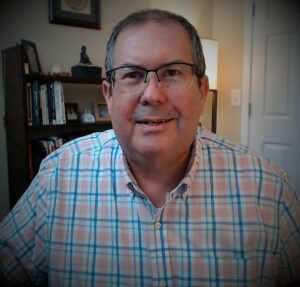
L. Gordon Brewer Jr., LMFT | Podcast Host – Gordon has spent his career in helping professions as a licensed therapist, counselor, trainer, and clergy person. He has worked with 100’s of people in teaching them the how to better manage their emotions through self-care and the practices of kindness and compassion. Follow us on Instagram and Facebook . And be sure to subscribe to our newsletter.

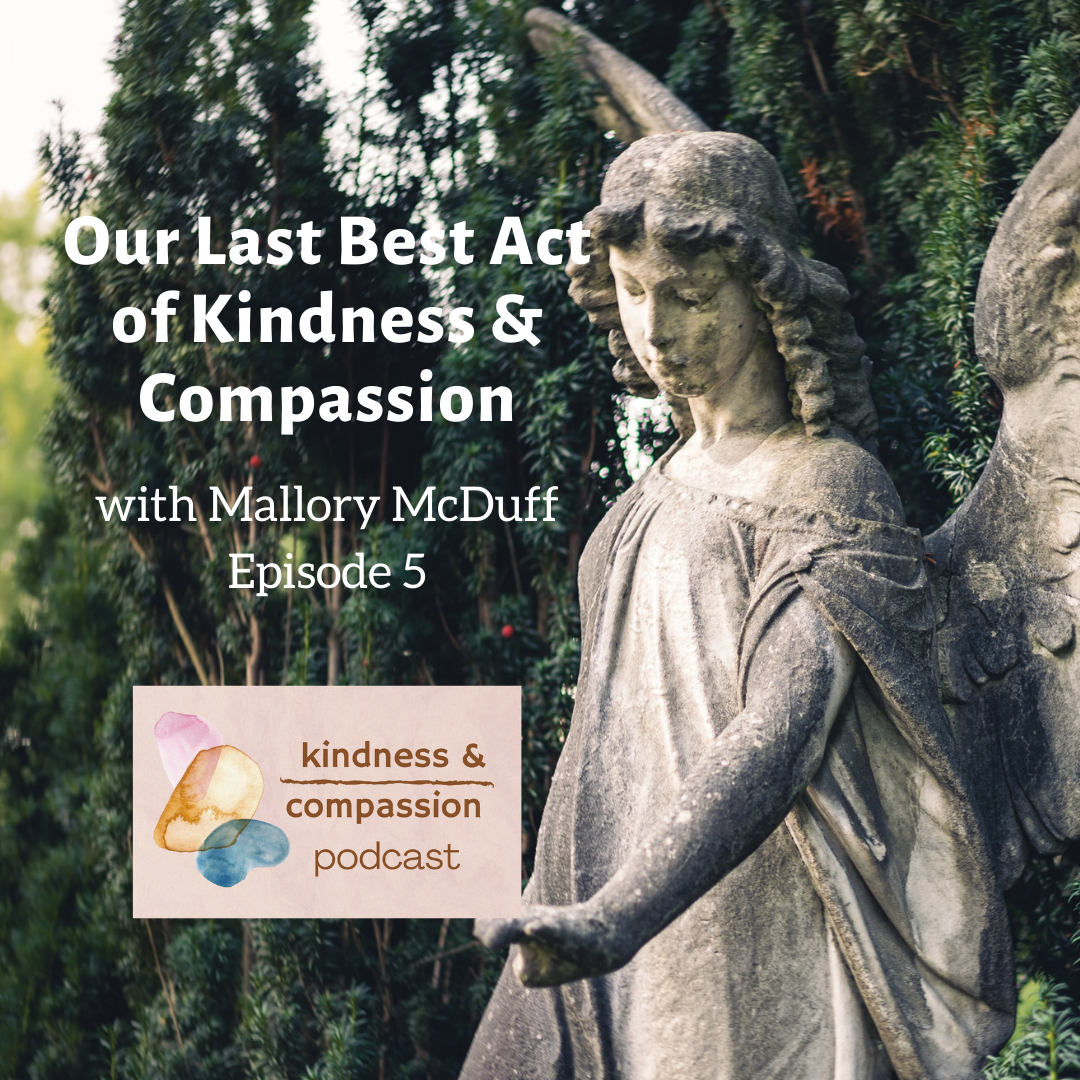

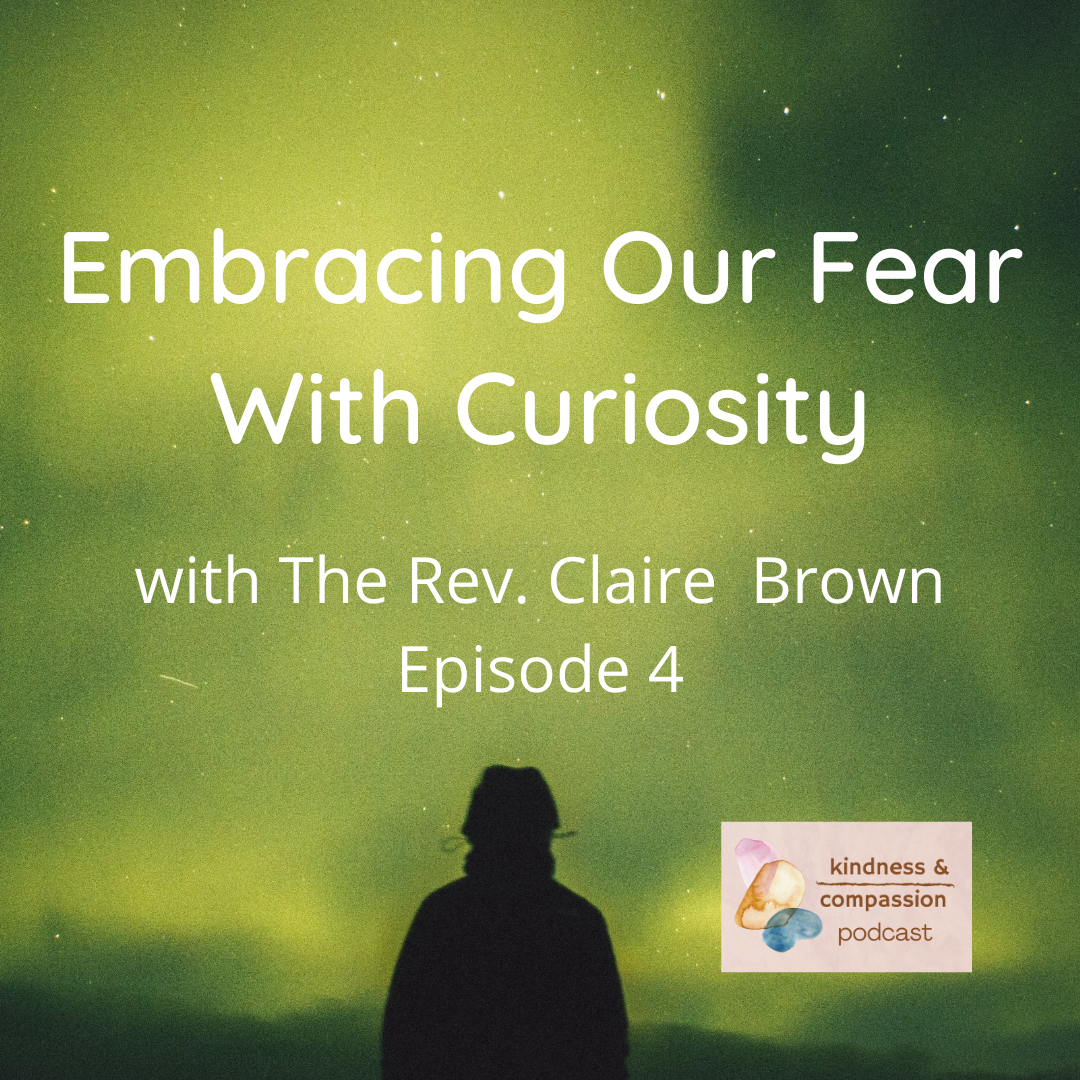
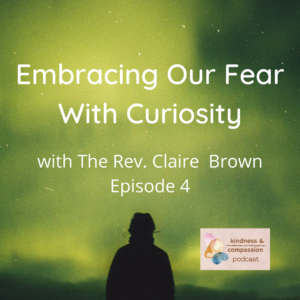 As counterintuitive as it sounds, does embracing our fear help us to show more kindness and compassion? In this episode of the podcast I am joined by The Rev. Claire Brown as we discuss her thoughts on befriending and being curious about our fear as a way to show self-compassion and empower ourselves.
As counterintuitive as it sounds, does embracing our fear help us to show more kindness and compassion? In this episode of the podcast I am joined by The Rev. Claire Brown as we discuss her thoughts on befriending and being curious about our fear as a way to show self-compassion and empower ourselves.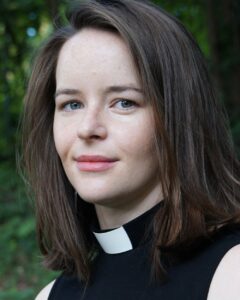 The Rev. Claire Brown is an Episcopal priest, writer, facilitator, and spiritual director. Claire is the author of numerous articles and book chapters, and is the co-editor of
The Rev. Claire Brown is an Episcopal priest, writer, facilitator, and spiritual director. Claire is the author of numerous articles and book chapters, and is the co-editor of 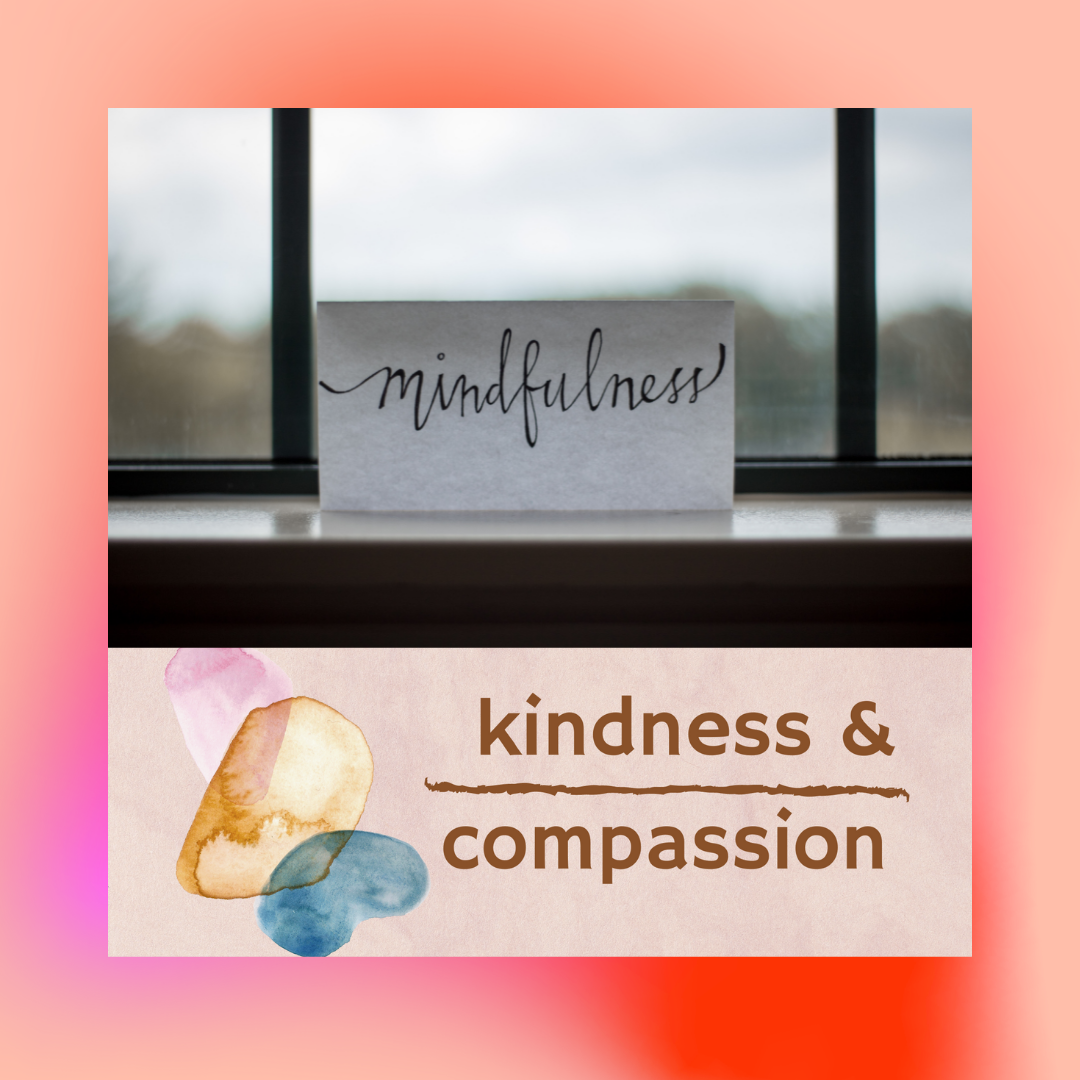
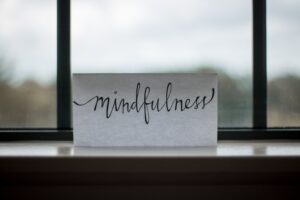
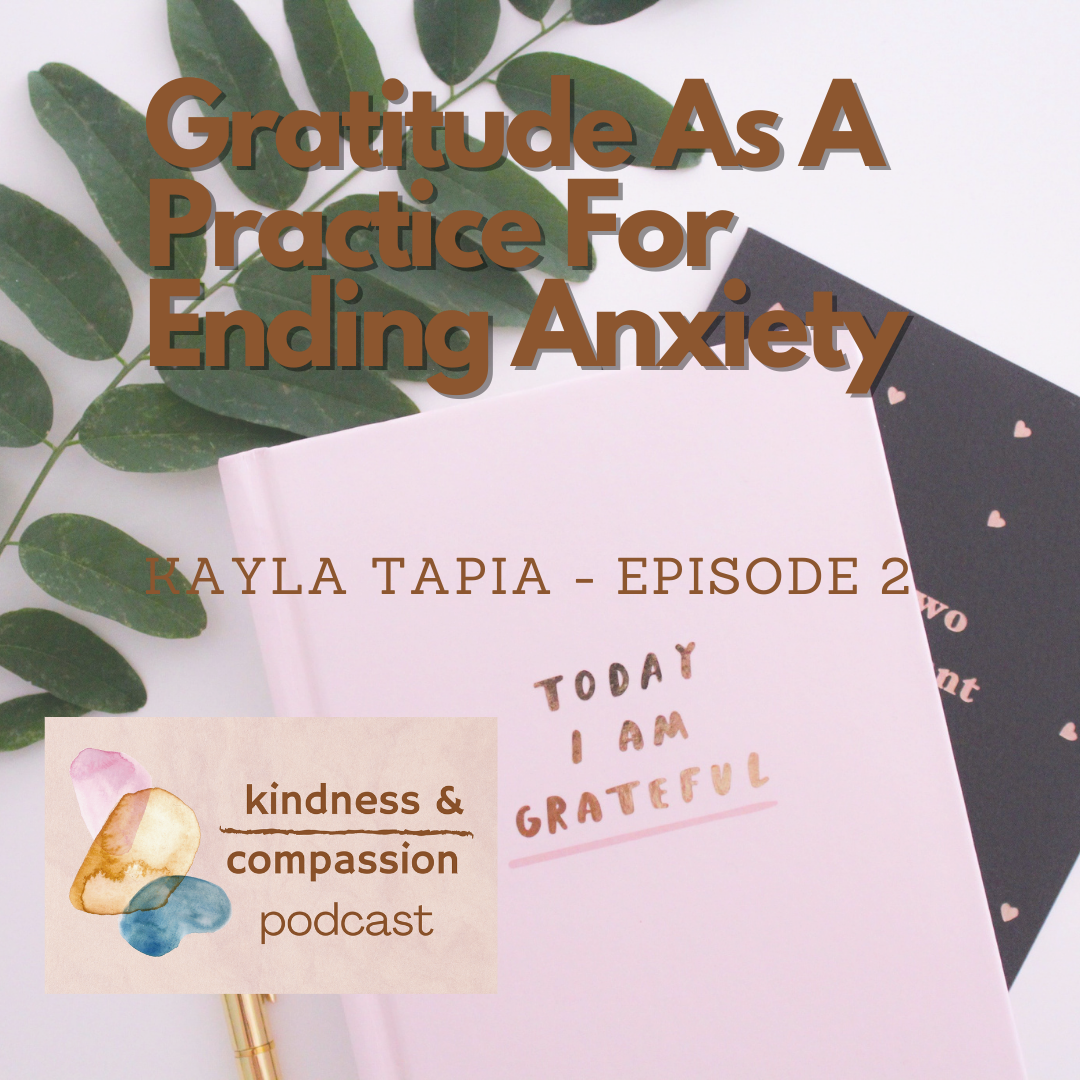

 Kayla Pennington Tapia is a counselor and therapist in private practice in Johnson City, TN. She is a native of the Appalachian region and is passionate about helping people find new ways to work through their “stuck” places.
Kayla Pennington Tapia is a counselor and therapist in private practice in Johnson City, TN. She is a native of the Appalachian region and is passionate about helping people find new ways to work through their “stuck” places. 
